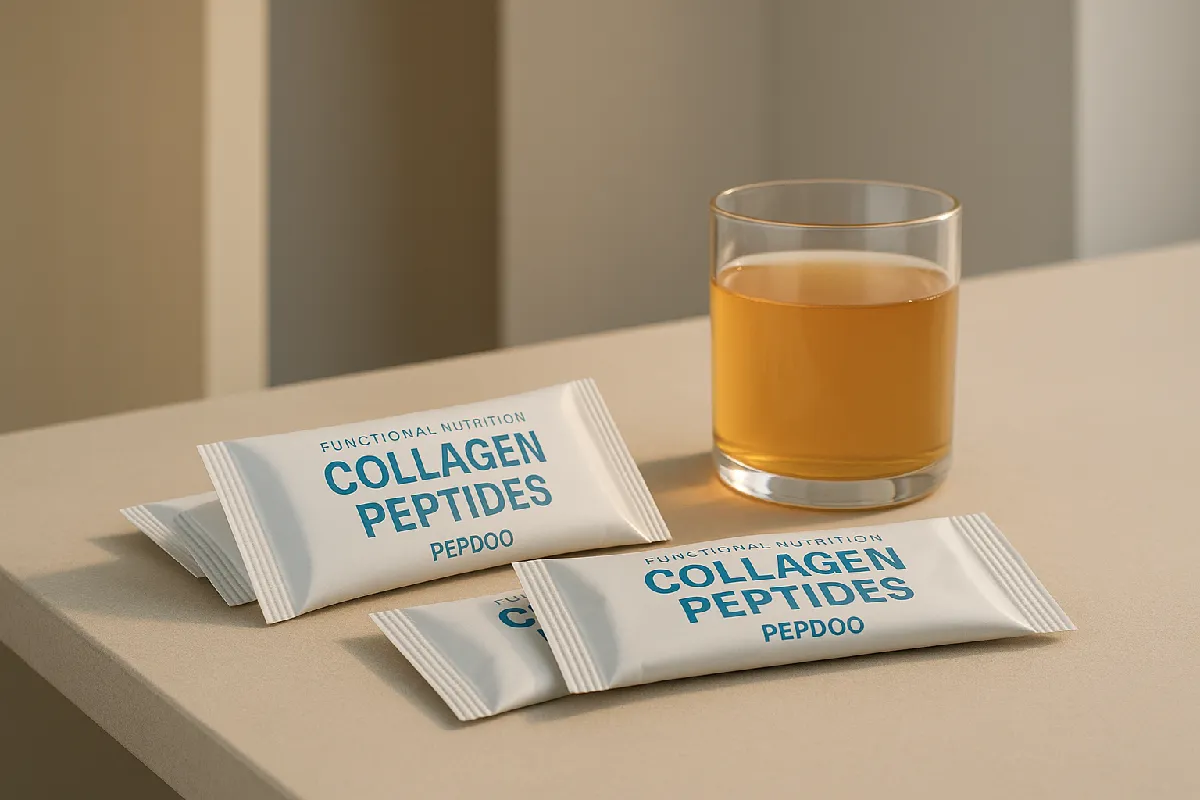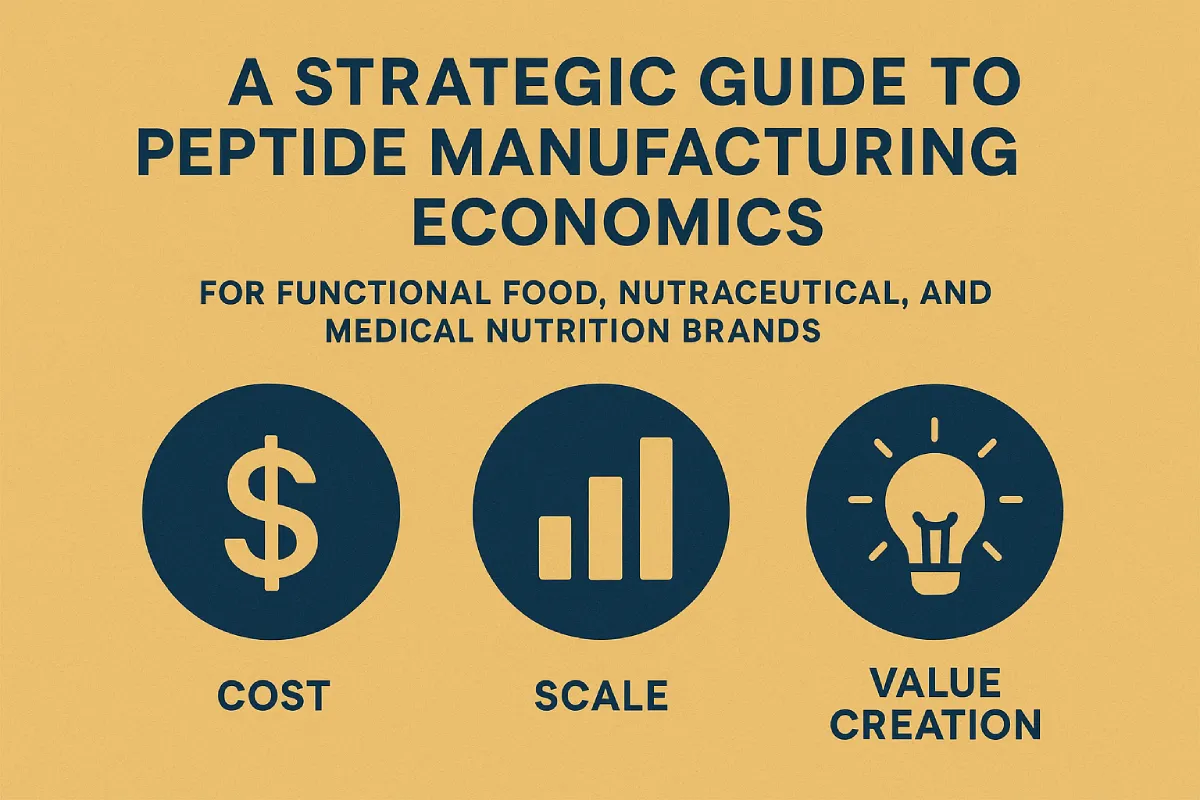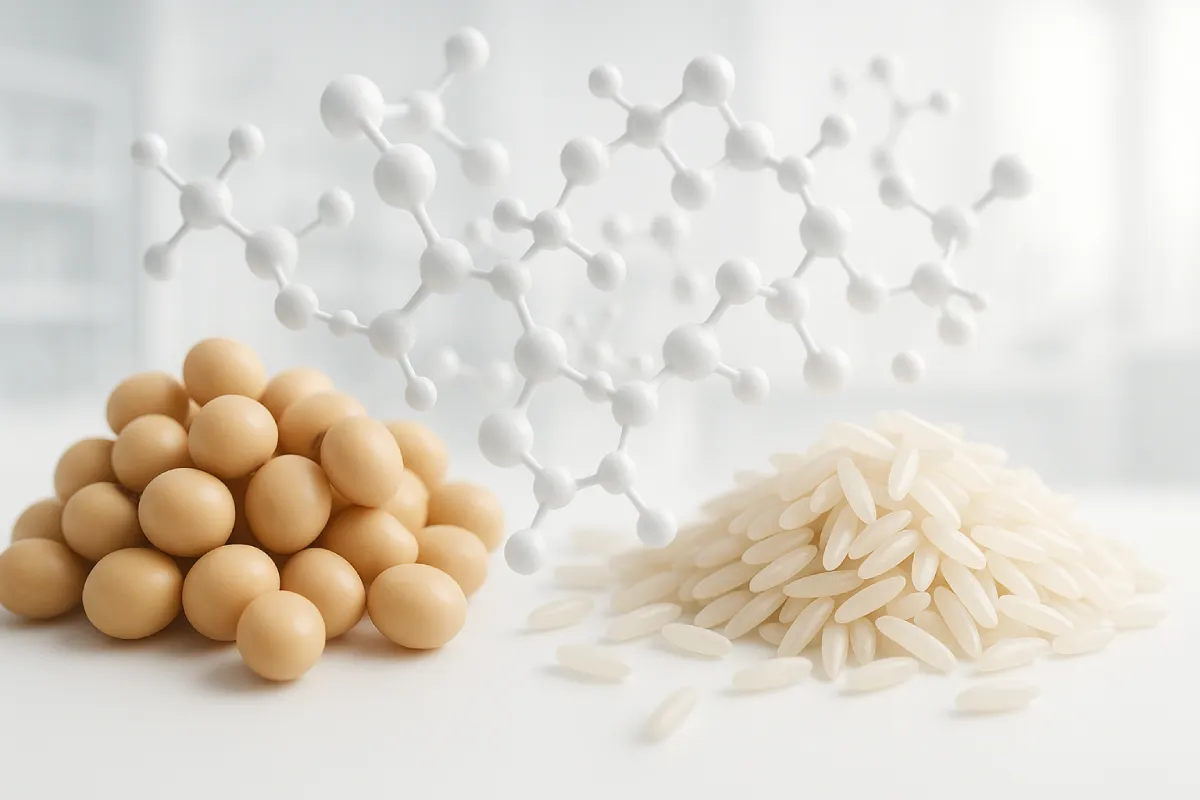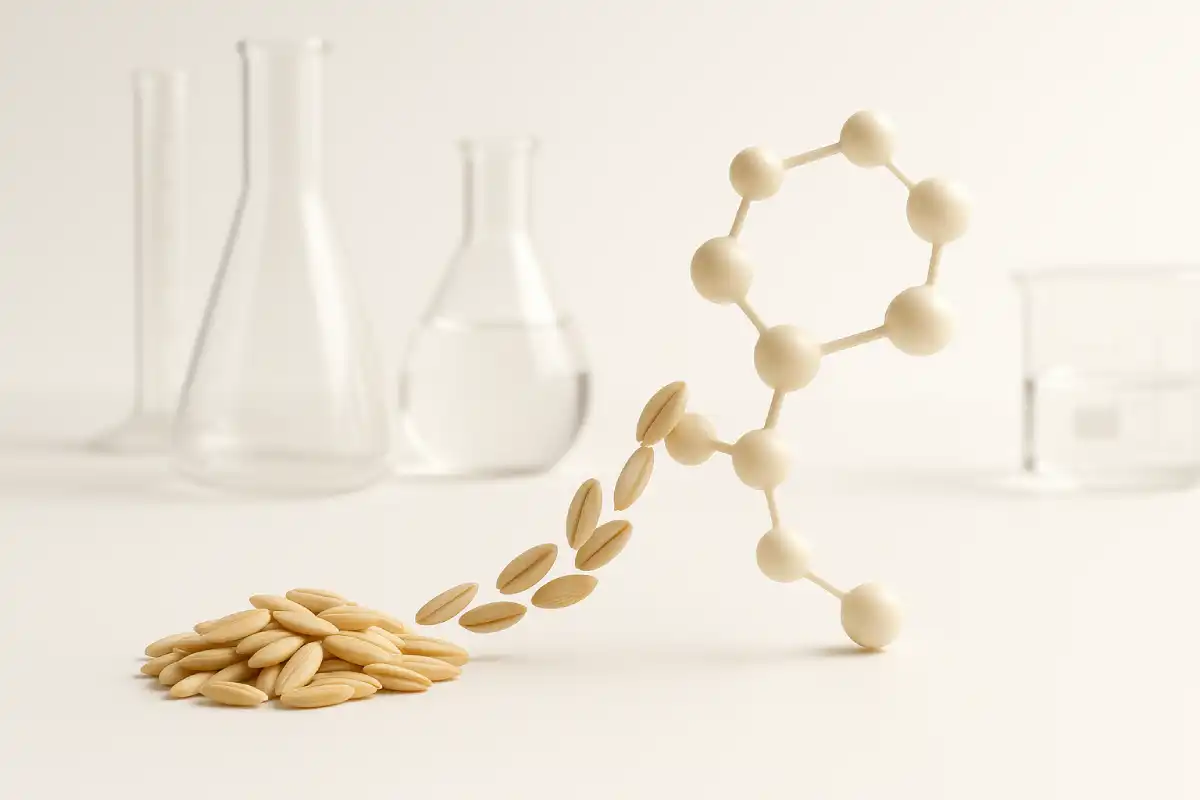Peanut Peptides in the Expanding Functional Beverage Market
The global functional beverage market is experiencing rapid growth, driven by increasing consumer demand for health-promoting, convenient, and sustainable products. Plant-based proteins, particularly peanut peptides, are emerging as valuable ingredients in this sector. Derived from enzymatic hydrolysis of peanut proteins, peanut peptides offer a range of bioactive properties, including antioxidant, anti-inflammatory, and metabolic benefits. This article explores the opportunities and formulation challenges associated with incorporating peanut peptides into functional beverages, providing insights for B2B stakeholders in the functional foods, dietary supplements, and medical nutrition industries.
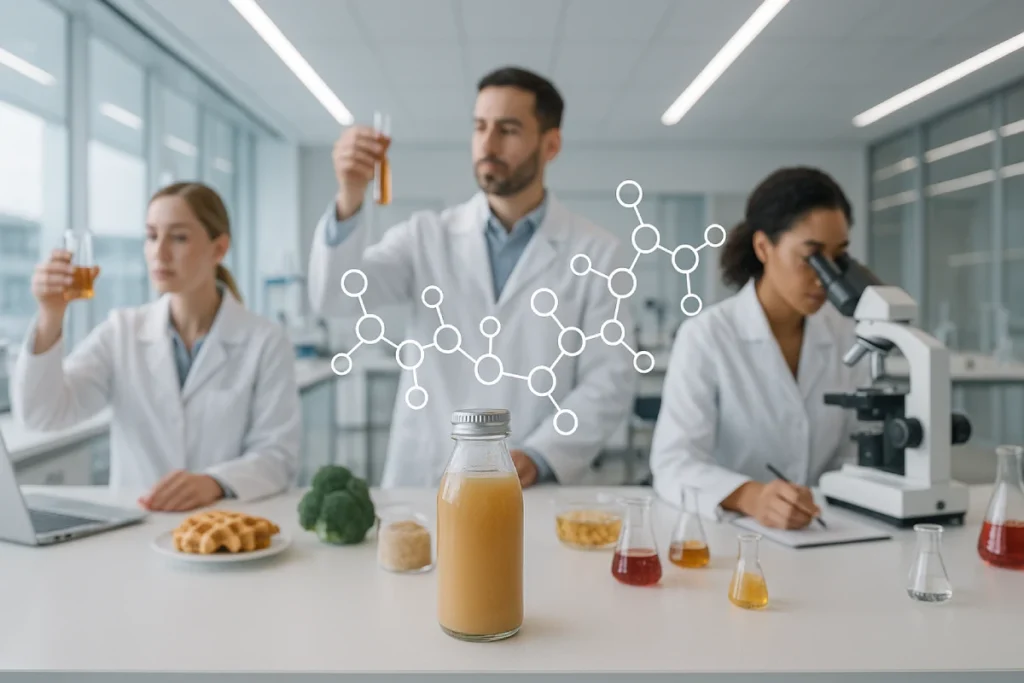
Peanut Peptides: Sources, Preparation, and Functional Benefits
Sources and Production Methods
Peanut peptides are primarily obtained through enzymatic hydrolysis of defatted peanut meal. Enzymes such as Alcalase, Papain, and Flavourzyme are commonly used to break down peanut proteins into smaller peptides with enhanced solubility and bioactivity [1]. Advanced techniques like fermentation-assisted hydrolysis and ultrafiltration further improve peptide yield and functionality, making them suitable for beverage applications.
Functional Properties
Peanut peptides are rich in essential amino acids, offering a nutritional profile comparable to animal proteins. They exhibit various bioactive properties, including:
- Antioxidant Activity: Scavenging free radicals to reduce oxidative stress.
- Anti-inflammatory Effects: Modulating inflammatory pathways, potentially supporting metabolic health.
- Metabolic Regulation: Influencing glucose and lipid metabolism, offering opportunities in functional beverages targeting weight management and cardiometabolic health.
These properties make peanut peptides a promising ingredient for functional beverages aimed at promoting overall health and wellness.
Peanut Peptides: Sources, Preparation, and Functional Benefits
Sources and Production Methods
Peanut peptides are primarily obtained through enzymatic hydrolysis of defatted peanut meal. Enzymes such as Alcalase, Papain, and Flavourzyme are commonly used to break down peanut proteins into smaller peptides with enhanced solubility and bioactivity [1]. Advanced techniques like fermentation-assisted hydrolysis and ultrafiltration further improve peptide yield and functionality, making them suitable for beverage applications.
Functional Properties
Peanut peptides are rich in essential amino acids, offering a nutritional profile comparable to animal proteins. They exhibit various bioactive properties, including:
- Antioxidant Activity: Scavenging free radicals to reduce oxidative stress.
- Anti-inflammatory Effects: Modulating inflammatory pathways, potentially supporting metabolic health.
- Metabolic Regulation: Influencing glucose and lipid metabolism, offering opportunities in functional beverages targeting weight management and cardiometabolic health.
These properties make peanut peptides a promising ingredient for functional beverages aimed at promoting overall health and wellness.
Formulation Challenges of Incorporating Peanut Peptides in Beverages
Sensory Attributes
One of the primary challenges in formulating peanut peptide-based beverages is achieving desirable sensory attributes. Peanut peptides can impart a strong peanut flavor, which may not be appealing to all consumers. Additionally, the bitterness associated with certain peptides can affect the overall taste profile of the beverage.
Solubility and Stability
Ensuring the solubility and stability of peanut peptides in beverage formulations is crucial. Factors such as pH, temperature, and ionic strength can influence the solubility and stability of peptides. Formulation strategies need to address these factors to maintain the desired quality and shelf-life of the beverage.
Regulatory Considerations
Incorporating peanut peptides into beverages requires adherence to regulatory standards. This includes ensuring the safety of the peptides, proper labeling, and compliance with food regulations. Additionally, addressing potential allergens, such as peanuts, is essential to meet consumer safety expectations and regulatory requirements.
Practical Formulation Strategies for Peanut Peptide Beverages
Ingredient Selection
Selecting appropriate ingredients is key to developing a successful peanut peptide-based beverage. Combining peanut peptides with other plant-based proteins, such as pea or rice protein, can enhance the nutritional profile and improve the taste and texture of the beverage.
Processing Techniques
Employing processing techniques like microencapsulation can help mask undesirable flavors and improve the stability of peanut peptides in the beverage. Additionally, optimizing processing conditions, such as temperature and pH, can enhance the solubility and functionality of the peptides.
Sensory Optimization
Conducting sensory evaluations and consumer testing can guide the optimization of flavor profiles. Adjusting the concentration of peanut peptides and incorporating flavor masking agents can help achieve a more palatable taste.
Successful Applications of Peanut Peptides in Functional Beverages
Case Study 1: Sports Nutrition Beverage
A leading sports nutrition brand developed a plant-based protein beverage incorporating peanut peptides. The beverage was formulated to provide sustained energy and support muscle recovery. Sensory optimization techniques were employed to balance the peanut flavor, resulting in a product that appealed to athletes seeking plant-based protein sources.
Case Study 2: Immune Support Drink
A health-focused beverage company introduced an immune support drink containing peanut peptides. The product was designed to enhance immune function through the bioactive properties of the peptides. The inclusion of complementary ingredients, such as vitamin C and zinc, further supported the beverage’s health claims.
Case Study 3: Weight Management Beverage
A wellness brand launched a weight management beverage featuring peanut peptides. The beverage aimed to regulate metabolism and promote satiety. The formulation combined peanut peptides with other functional ingredients, such as fiber and green tea extract, to support weight management goals.
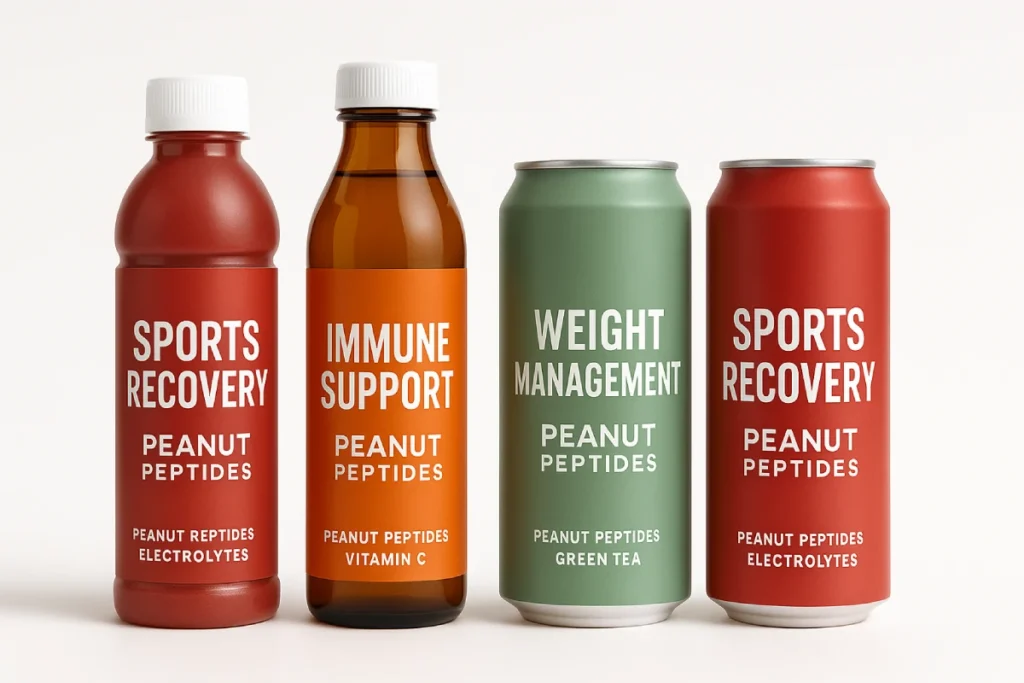
Final Insights: Opportunities and Challenges of Peanut Peptides in Beverage
Peanut peptides present significant opportunities for innovation in the functional beverage market. Their nutritional and bioactive properties align with consumer demand for health-promoting, plant-based products. However, formulation challenges related to sensory attributes, solubility, stability, and regulatory considerations must be addressed to successfully incorporate peanut peptides into beverages. By employing strategic formulation approaches and leveraging successful case studies, B2B stakeholders can develop functional beverages that meet consumer expectations and capitalize on the growing demand for functional, plant-based products.
Partner with PEPDOO® for Next-Gen Functional Beverages
As a leading peptide manufacturer and innovation partner, PEPDOO® provides high-quality peanut peptides and custom formulations for functional beverages, dietary supplements, and medical nutrition. Let’s co-create products that meet global consumer demand for plant-based, health-driven solutions.
Contact Our ExpertsFAQ
A1: Peanut peptides are rich in essential amino acids and possess bioactive properties such as antioxidant, anti-inflammatory, and metabolic regulation effects. For B2B brands, these benefits allow the development of functional beverages targeting muscle recovery, immune support, metabolic health, and weight management [1][2].
A2: Peanut peptides offer a balanced amino acid profile and unique bioactive sequences, which can enhance the nutritional and functional profile of beverages. Compared to soy or pea peptides, they may provide a distinctive flavor and additional antioxidant activity, giving B2B brands opportunities to differentiate their products [1].
A3: Key challenges include managing the strong peanut flavor, bitterness, solubility and stability under various pH and temperature conditions, and compliance with allergen labeling and food safety regulations. Addressing these challenges requires careful ingredient selection, processing techniques, and sensory optimization [2].
A4: Techniques such as microencapsulation, fermentation-assisted hydrolysis, ultrafiltration, and optimized temperature and pH control can enhance solubility, mask undesired flavors, and preserve bioactivity. Combining peanut peptides with other plant proteins or functional ingredients can further improve taste, texture, and nutritional value [1][2].
A5: Yes, several B2B success stories include sports nutrition beverages using peanut peptides for sustained energy and muscle recovery, immune support drinks incorporating bioactive peptides for enhanced immunity, and weight management beverages combining peanut peptides with fiber and green tea extract to regulate metabolism and promote satiety. These cases demonstrate the potential for differentiation and market acceptance [1][2].
A6: B2B brands should seek suppliers who offer consistent quality, standardized peptide production, compliance with international food safety standards, and technical support for formulation optimization. Working with experienced peptide manufacturers ensures scalability, traceability, and functional consistency in beverages [1].
A7: Absolutely. Peanut peptides can synergize with proteins like whey or pea peptides, probiotics, vitamins, minerals, or plant extracts. Such combinations can enhance bioactivity, improve taste, and create multi-functional beverages catering to specific consumer health needs [2].
References
- Zhang, Y., Li, X., & Wang, J. (2023). Development and optimization of peanut-based beverages. Journal of Food Science, 88(1), 123-134.
- Wu, X., Zhang, L., & Li, Y. (2009). Peanuts as functional food: A review. Journal of Food Science, 74(1), R1-R8.
- Sharma, N., Yeasmen, N., Dubé, L., & Orsat, V. (2024). A review on current scenario and key challenges of plant-based functional beverages. Food Bioscience, 60, 104320.
- Qi, Y., Zhou, J., Shen, X., Chalamaiah, M., Lv, S., Luo, H., & Chen, L. (2022). Bioactive properties of peptides and polysaccharides derived from peanut worms: A review. Marine Drugs, 20(1), 10.
- Yeasmen, N., Sharma, N., Dubé, L., & Orsat, V. (2024). Functional components of plant-based milk alternatives and their health benefits. Food Bioscience, 60, 104320.


